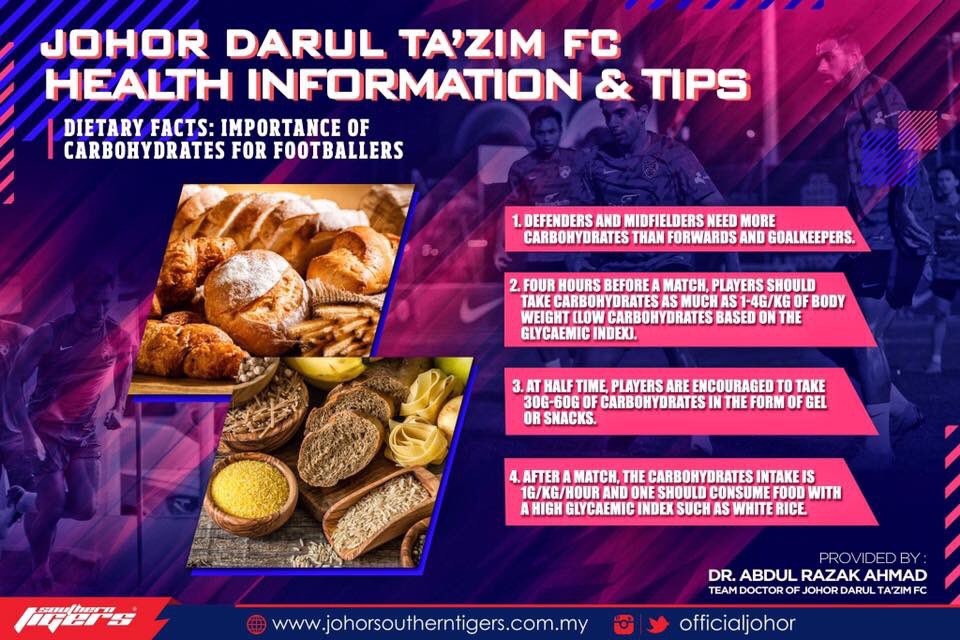Carbohydrates are one of the important nutritional sources to provide energy for the body. It is converted into glucose in the blood for the use of internal organs. [1/9]
The Glycaemic Index (GI) is a measurement used as an indicator of how fast carbohydrates in food are turned into glucose by the body. It is measured on a scale from 0 to 100.
[2/9]
Carbohydrates with a GI rating of under 55 is low, slowly absorbed by the intestines and produces low glucose in the blood.
[3/9]
The Glycaemic Index (GI) information can be found on food packaging. Players are advised to consume food with a low GI, especially before matches or training, and a high GI after matches or training.
[4/9]
The consumption of food with a high GI is suitable after matches or training because it can restore energy quickly.
[5/9]
A study done by Universidad de Oviedo and San Pablo-CEU University in Spain found that defenders & midfielders need more carbohydrates than forwards & goalkeepers. They need a carbohydrate intake of as much as 3.9-6.4g/kg of body weight compared to the regular 2.9-5.4g/kg.
[6/9]
Four hours before a match, players are required to take carbohydrates as much as 1-4g/kg of body weight and carbohydrates with a low Glycaemic Index.
[7/9]
At half time, players are advised to take 30-60g of carbohydrates in the form of gel or snack. After a match, the carbohydrate intake should be 1g/kg/hour and one should eat food with a high Glycaemic Index such as white rice.
[8/9]
This health information is provided by Dr. Abdul Razak Ahmad, team doctor of Johor Darul Ta'zim FC (JDT). Luaskan Kuasamu Johor.
[9/9]

Ulasan
Catat Ulasan